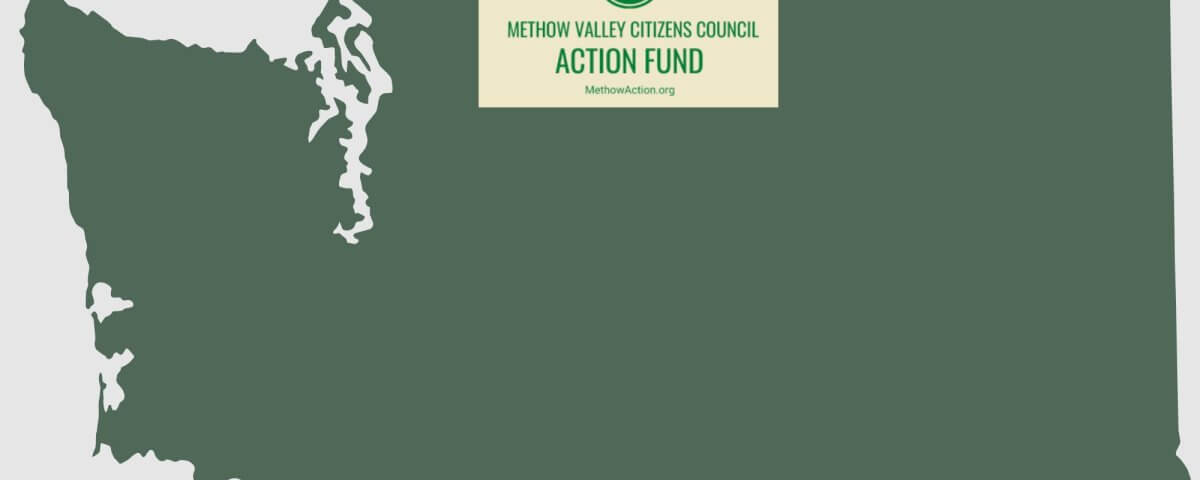2023 Legislative Roundup

METH❤W LOVE Campaign-Give Big
May 1, 2023
Midnight Forest Restoration Comment Guide
June 2, 20232023 Legislative Roundup
The 2023 Legislature came to a close on April 24th. A number of bills that will have lasting beneficial local effects made it through the legislative gauntlet. For the first time this year, MVCC was a part of the Environmental Priorities Coalition, a group of 27 statewide environmental organizations working to safeguard our environment and the health of our communities in the Washington State. In this long legislative session, the MVCC Action Fund advocated for many bills to protect and improve the natural environment and rural character of Okanogan County.
Bills MVCCAF Supported that passed:
1181-Planning for a Climate Friendly Future
If we want to create communities that are resilient to climate change we have to begin planning for those communities. While the Methow Valley is working to respond proactively to climate change through its Climate Action Plan, Okanogan County continues to drag its feet in adapting to the changes that will come. This Growth Management Act (GMA) climate bill will require local governments to incorporate climate resiliency measures and reduce emissions equitably in their long-term plans. Although Okanogan County isn’t yet planning under the growth management act (pop. threshold of 50,000) at the current rate of growth it won’t be too long before we are! This was a priority bill of the Environmental Priorities Coalition (EPC) which MVCC is a part of. A dedicated effort on behalf of EPC and Futurewise really helped to push this bill through!
1460- Revitalizing State Trust Land Transfers
In the State of Washington, the Department of Natural Resources manages over 5.6 million acres of state land which generate revenue for schools, universities and other beneficiaries. Since 1989, DNR has had a budget mechanism to transfer state trust lands to other agencies or counties to be managed for conservation, wildlife habitat, clean water, or recreational opportunities. However, because this mechanism has not been officially recognized in statute, it has not realized its full potential to enable the most appropriate status of these lands. The passage of this bill will create a clear path forward for communities like the Methow Valley that want to protect land to work with trust beneficiaries, Tribes and all stakeholders to find solutions. We are pleased that our District 7 legislators, Representatives Kretz and Maycumber and Senator Short, supported this legislation. We’ll be looking out for budget funding to help support the Trust Land Transfer Program!
SHB 1138-Drought Preparedness
Last month, MVCC co-hosted an informative drought planning event to learn as a community about the climate impacts to our water supply and how we can prepare for and mitigate drought. SHB 1138, which passed through the legislature with broad bipartisan support, will make it easier to respond to droughts when they arise. The bill will make grants available to public entities and federally recognized tribes to reduce current or future hardship caused by drought.
HB1170-State’s Response to Climate Change
As our summers become hotter and snowpack decreases, drought and fire will continue to be prominent concerns in Okanogan County. This bill will improve our state’s ability to respond to the new demands climate change will place on us by updating the state’s integrated climate response strategy. This bill will require agencies to consider climate impacts and improve cross-agency coordination of state response to federal climate resilience funding opportunities.
HB1176-Workforce Planning for Clean Energy
This bill will help support the transition of the Methow and the Okanogan into a green, clean energy economy by helping to develop a workforce that can support and deliver this transformation. This bill creates two programs:
- The Washington Climate Corps network, which will support and grow climate-related service opportunities for young adults and veterans. These service opportunities will help young people and veterans identify a path and develop the skills for playing a role in the new economy.
- Creating a clean technology workforce advisory committee that will evaluate workforce needs to support the transition to a clean energy economy and propose solutions to mitigate the adverse impacts of that transition.
SHB 1085-Reducing plastic pollution Each action taken to reduce plastic, reduces the amount of plastic that will find its way into our landfills, rivers and oceans This bill will help to reduce plastic pollution by requiring refill fountains in new construction, so that people can easily refill their drinking water bottles. It will also phaseout hotel plastic-packaged mini-toiletries and the use of foam-filled floats that are used for docks.
Budget:
Funding for WDFW State Wildlife Action Plan (SWAP)
WDFW requested $47 million for biodiversity funding to boost threatened and endangered species recovery. They received half of that amount-$23 million. This plan takes a much-needed proactive approach to protecting wildlife by focusing statewide conservation actions towards conserving species and habitats before they become rare and listed as endangered species.
Bills MVCCAF Supported that Didn’t Pass:
Washington Recycling And Packaging Act (The WRAP Act): The WRAP Act would establish several mechanisms to reduce excess packaging, improve recycling outcomes, including establishing a bottle deposit system, and a producer responsibility system for packaging, which puts the costs of recycling collection and processing back onto the companies that produce the packaging waste in the first place. The policy would expand recycling access to more than 360,000 households across the state. Although the WRAP act didn’t pass in this legislative session, a proviso was included in the budget to study WRAP Act components and benefits.


